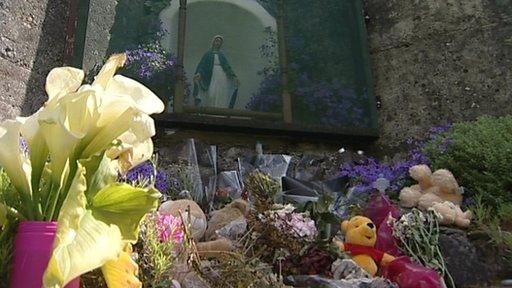Tuam mother and baby home 'chamber of horrors' - Irish PM
- Published
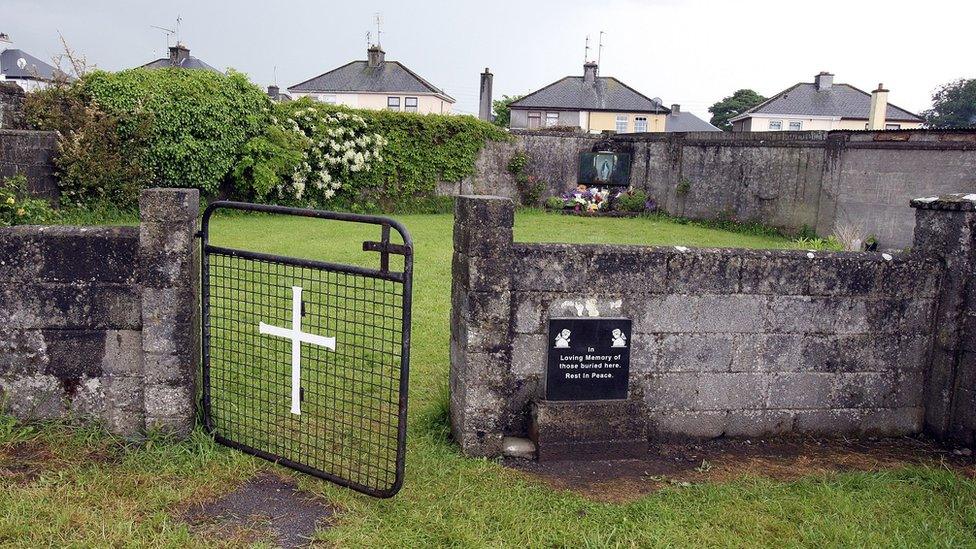
The home was demolished but a shrine was later erected on the site
The Tuam mother and baby home, where human remains have been discovered, was "a chamber of horrors", the Irish PM has said.
Taoiseach Enda Kenny said the discovery did not only concern a mass grave but "a social and cultural sepulchre".
A state-appointed inquiry has found "significant human remains" in underground chambers at the site of the former home in County Galway.
Tests confirmed the bodies ranged from premature babies to three year olds.
Irish police are liaising with the local coroner over the find.
Mr Kenny said the local coroner and everyone else involved now had to examine how best to progress the investigation relating to Tuam - and possibly other locations.
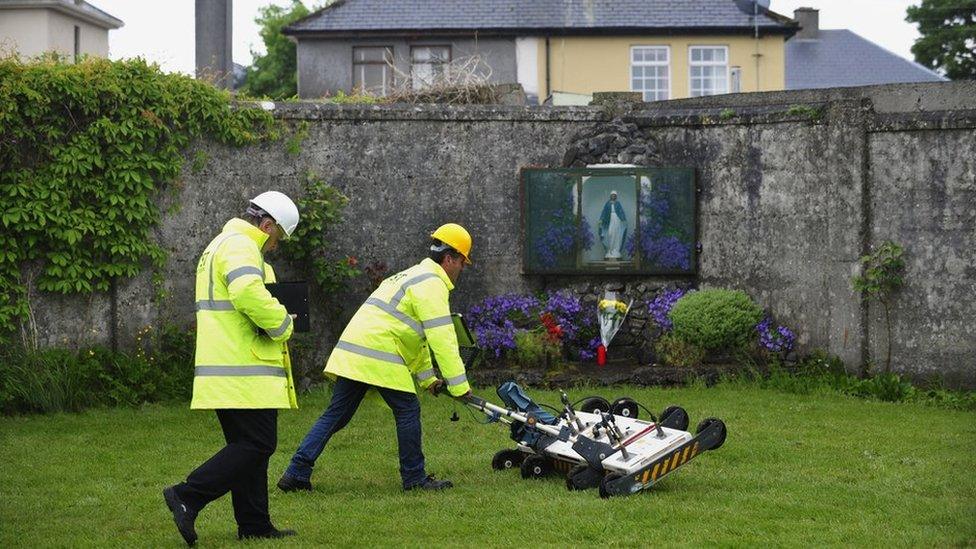
The land has been surveyed and excavated as part of a state-appointed inquiry into the unmarked graves
The Commission of Investigation is investigating claims, external - first raised by local historian Catherine Corless - that nearly 800 babies and young children died in the Tuam home and were buried in unmarked graves.
It was one of 10 Irish institutions run by religious orders, to which about 35,000 unmarried pregnant women are thought to have been sent.
A child died there nearly every two weeks between the mid-1920s and 1960s.
The Bon Secours order of nuns, which ran the home, have yet to respond to the development.
'Buried our compassion'
The leader of opposition party Fianna Fáil called on the government to issue a formal apology and said the inquiry should now investigate all the other mother and baby homes.
"They were considered to be lesser people in the overall society," said Micheál Martin, who added that the site should have a dignified memorial.
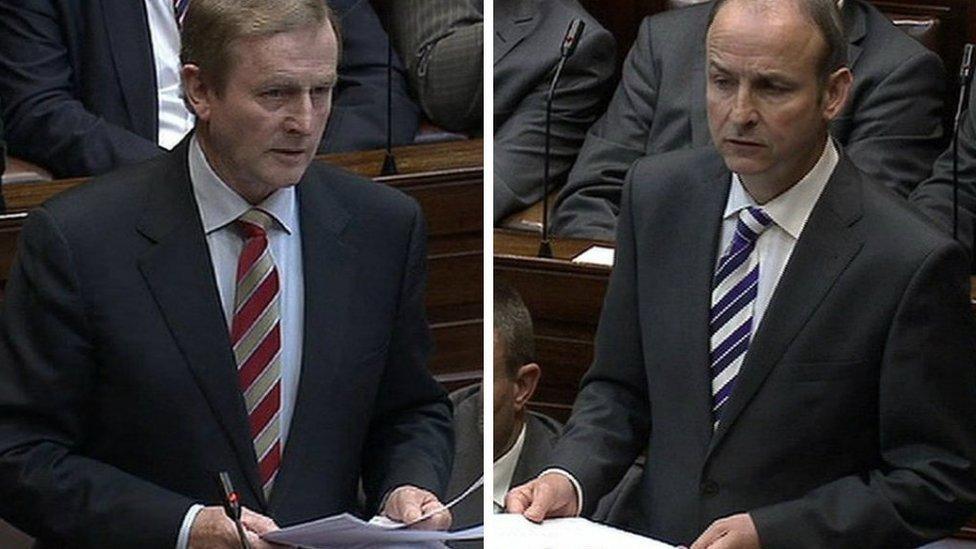
Enda Kenny (left) and Micheál Martin (right) said more questions need to be answered about the Tuam revelations
At question time in the parliament in Dublin on Tuesday, Mr Kenny said there needed to be a period of reflection before action is taken, but that action must be taken.
He said he would await further work from the commission, coroner, and police before deciding how to proceed.
He added that "we buried our compassion, humanity and mercy" and Irish society did not want to deal with such issues in the "so-called good old days".
"No nuns broke into our homes to take our children - we gave them up. We gave them up because of our morbid and perverse pursuit for respectability," he said.
'The truth'
Ms Corless found death certificates for 796 infants who died at the home from natural causes, but despite painstaking research, she was not been able to locate their burial records.
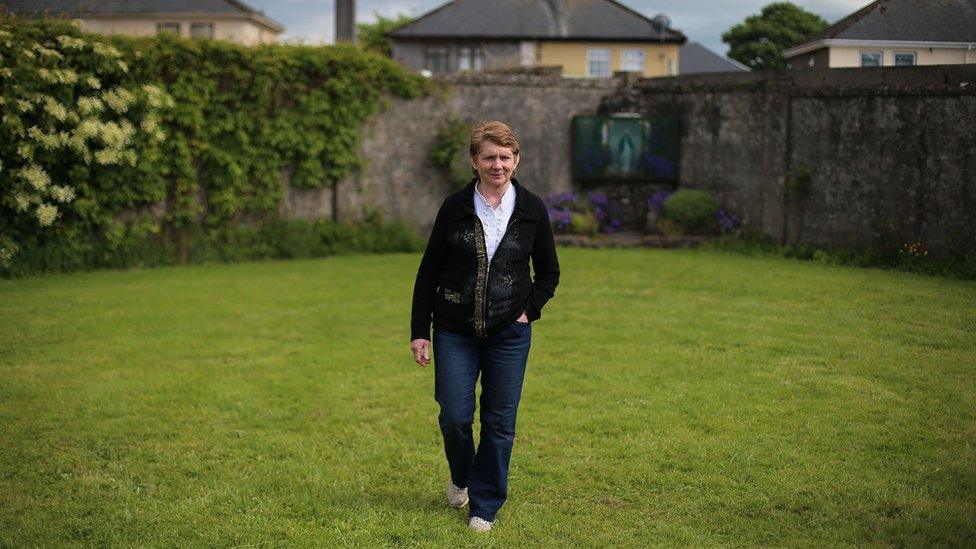
Catherine Corless carried out research in a bid to find the graves of 796 infants who died at the home
Speaking to BBC Radio Ulster on Monday, the historian said: "I did believe all along that it was only a matter of time until we came across them, so it was a good day to know that finally the truth had come out."
The home was run by the Bon Secours from 1925 to 1961. The building has since been demolished and in the 1970s, a housing estate was built on the land.
Two young boys who were playing at the site in the 1970s discovered some skeletal remains, but the matter was not fully investigated at the time.
- Published4 March 2017
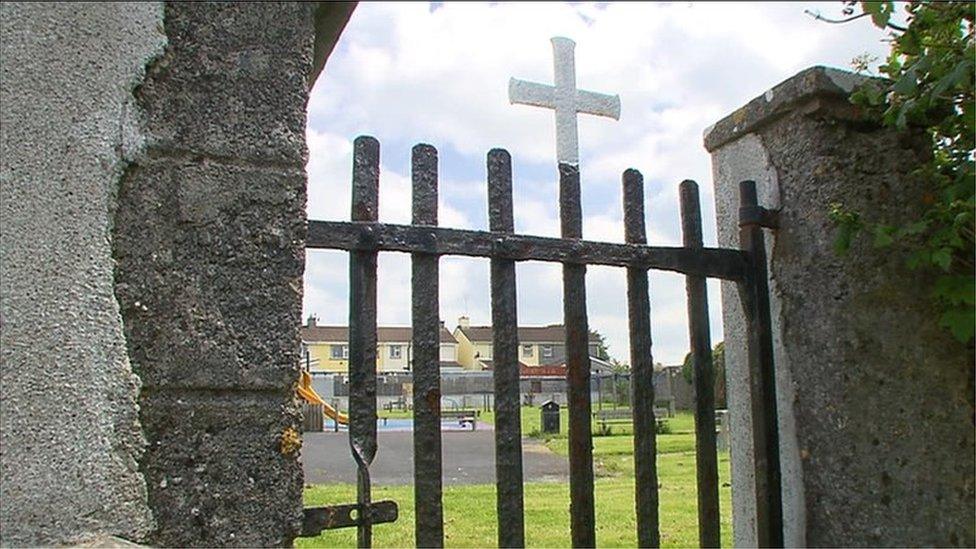
- Published9 October 2015
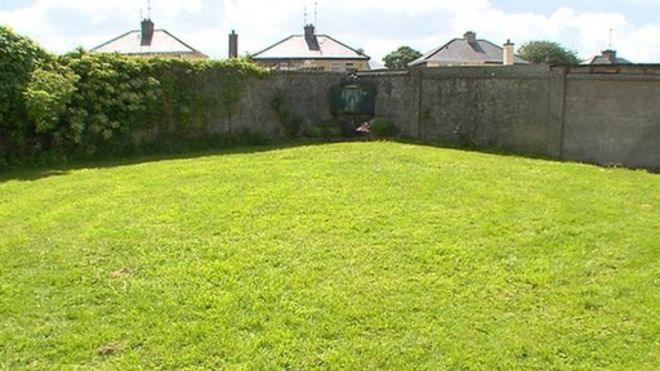
- Published6 June 2014
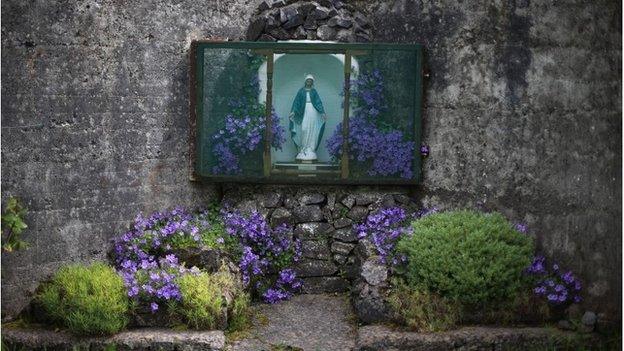
- Published23 June 2014
